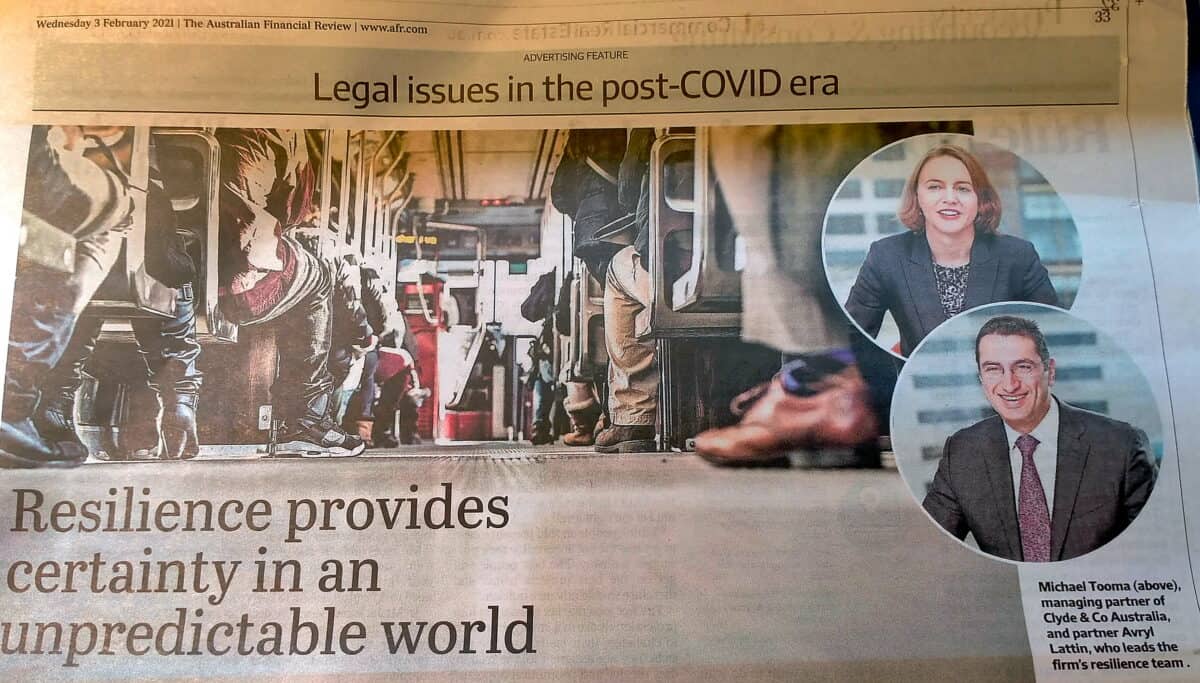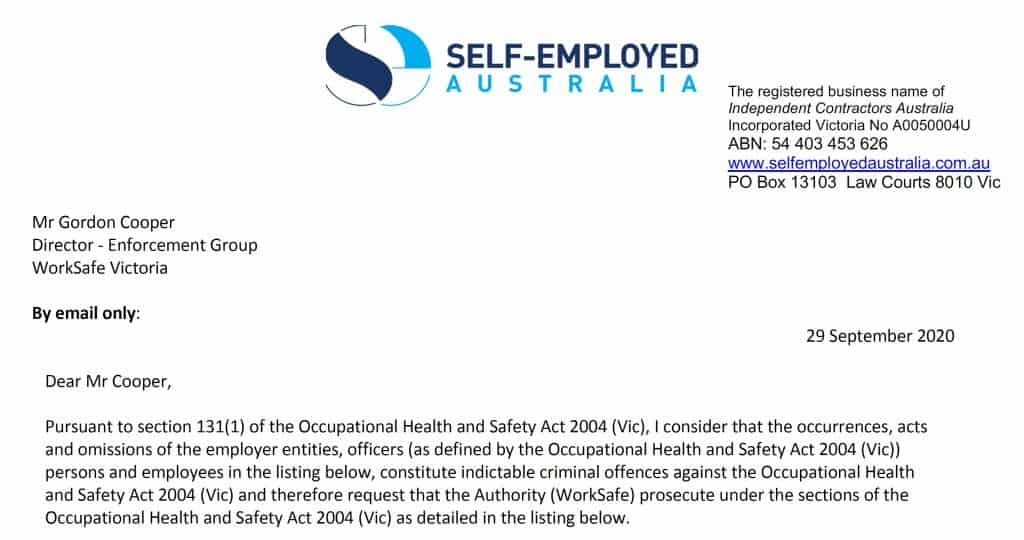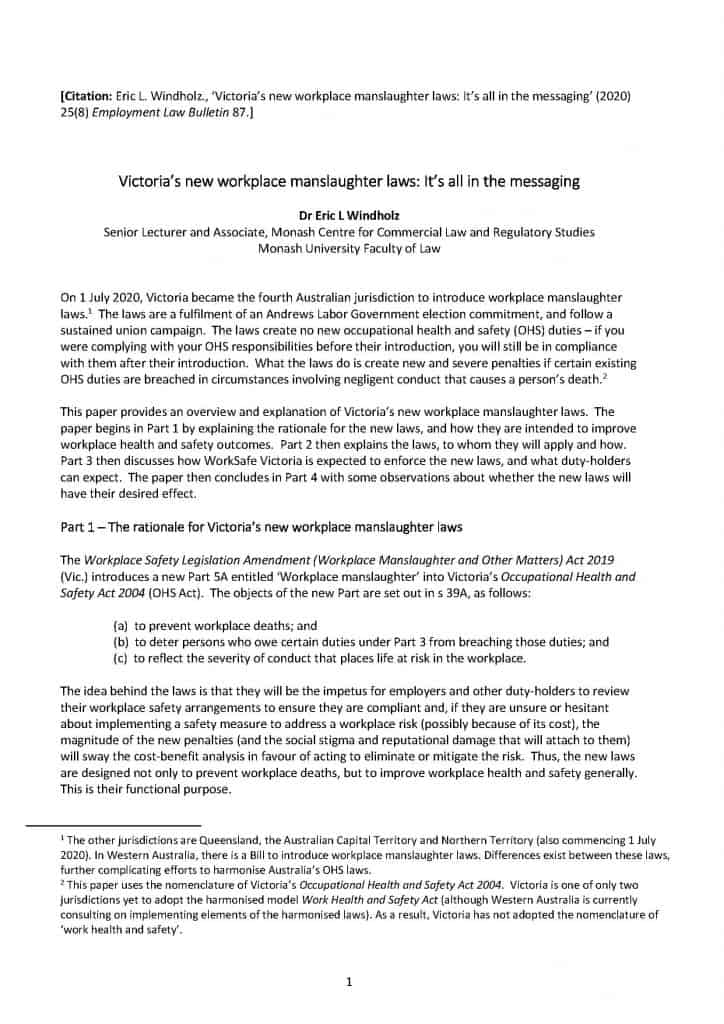Occupational health and safety (OHS) gets a mention in a full-page advertorial in the Australian Financial Review (AFR) (February 3 2021, page 33) revolving around the legal and business services of Clyde & Co. The advertorial contains a good example of the contemporary business jargon such as “organisational resilience” – a concept that has come to the fore during the COVID-19 pandemic.
“Organisational resilience” has several definitions but here is one used by the British Standards Institution:
“….the ability of an organization to anticipate, prepare for, respond and adapt to incremental change and sudden disruptions in order to survive and prosper.”
This has very strong similarities to the much longer-established concepts of “business continuity” or sustainability within which OHS has dabbled for decades.






